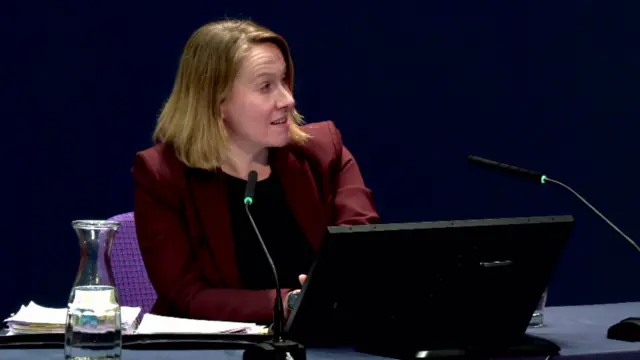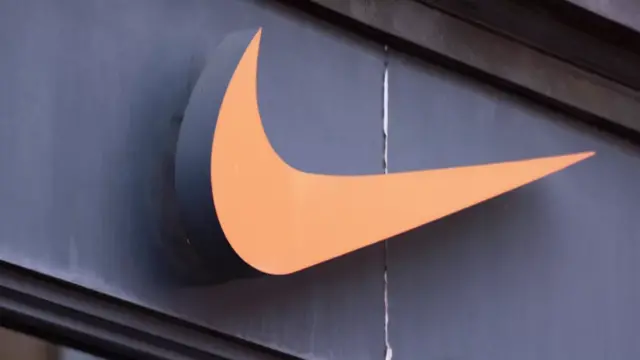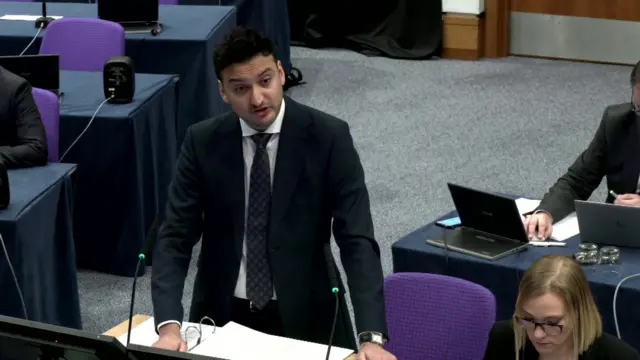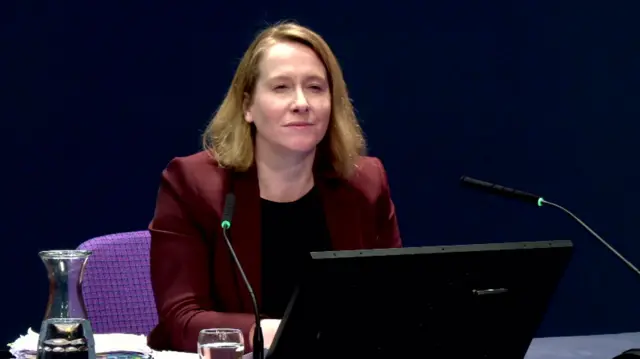Lloyd says she was 'Grinch' over Christmas restrictionspublished at 11:30 GMT 25 January 2024
 Image source, UK Covid Inquiry
Image source, UK Covid InquiryJust before the break, the inquiry turned to more messages between Lloyd and Sturgeon in which they discuss Covid restrictions over Christmas during the pandemic.
Lloyd writes that she is "increasingly leaning" to allowing socialisation with one other household at Christmas.
She adds: "But I'm also a Grinch about Christmas". Sturgeon responds: "I am too - but on this I (reluctantly) think there's merit in UK-wide position".
Lloyd tells the inquiry that the Scottish government was "essentially bounced by the UK government into a position about Christmas".
"Telling people they can't have it when the UK government has said you can was a very difficult situation to be put in," she adds.




